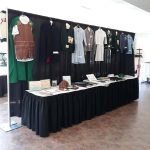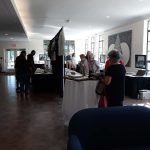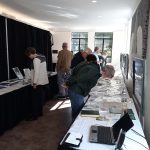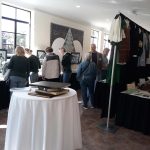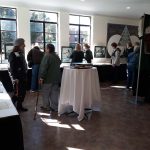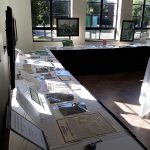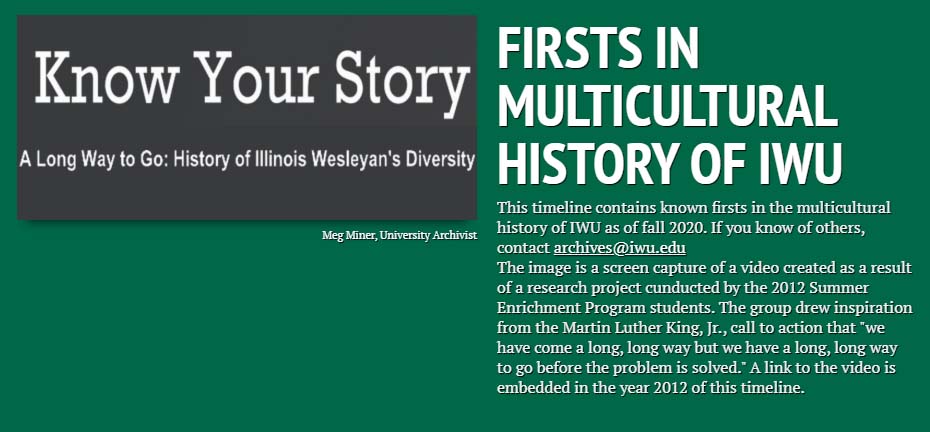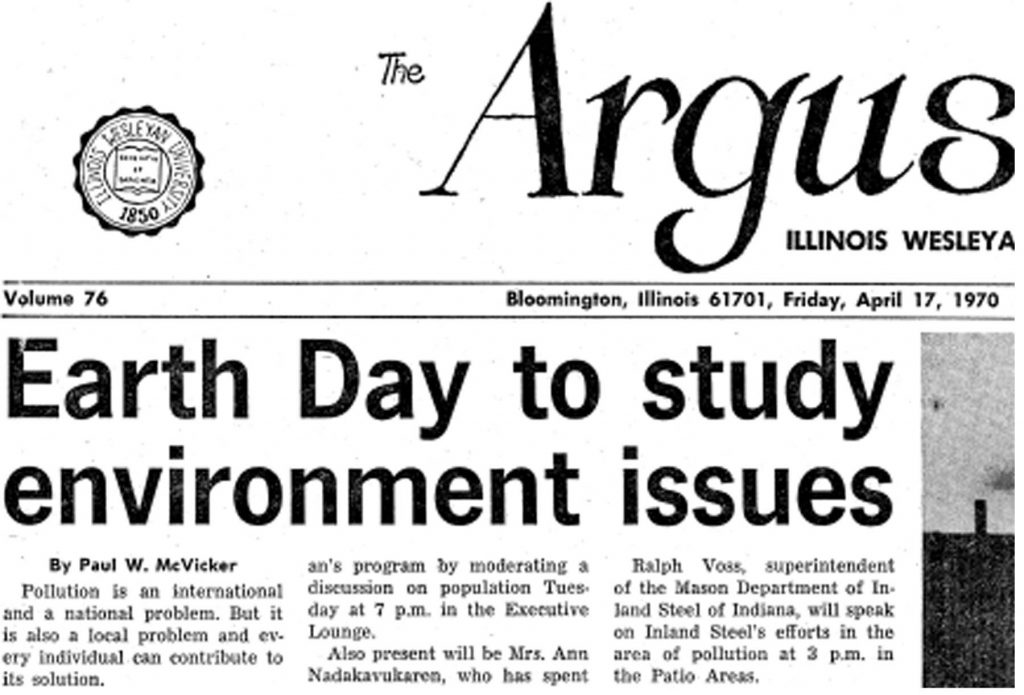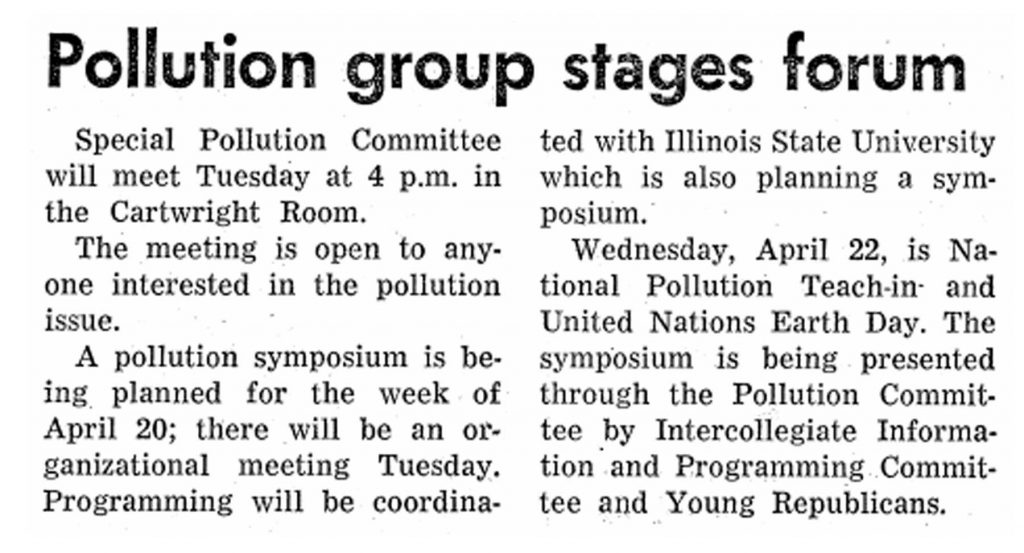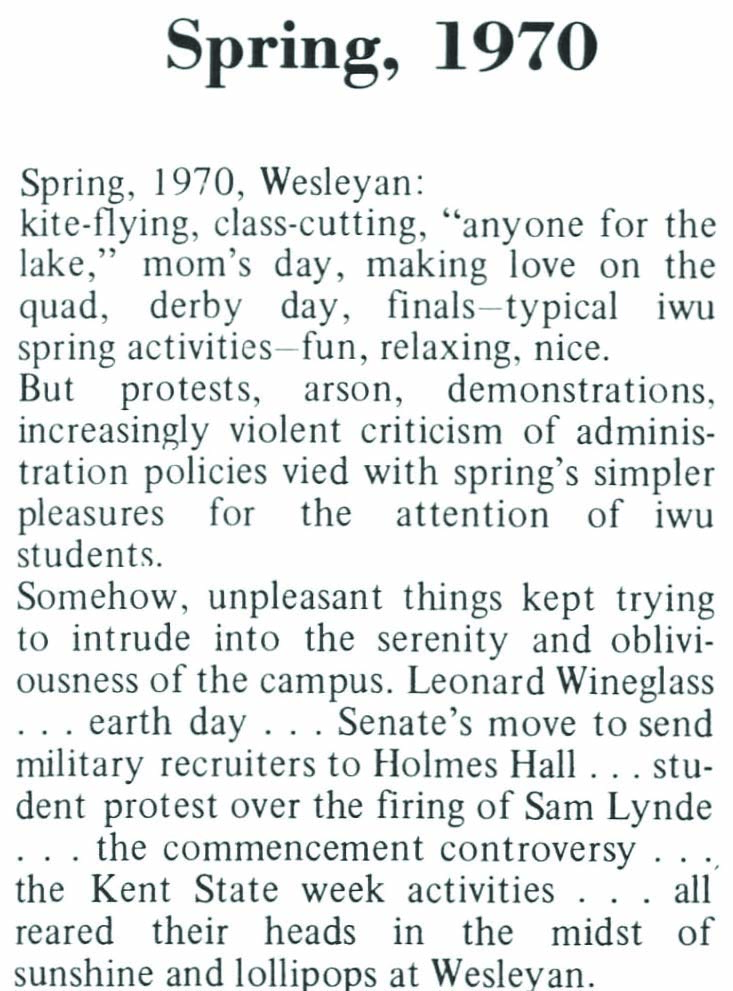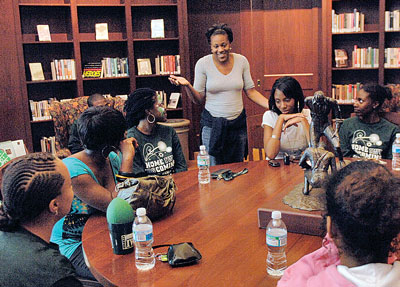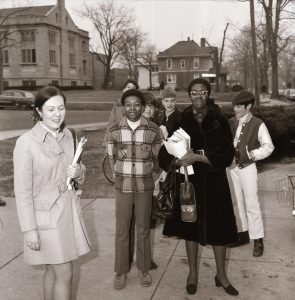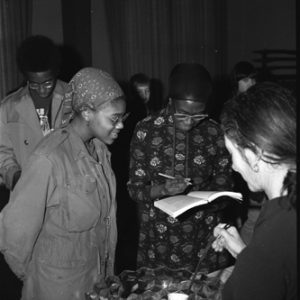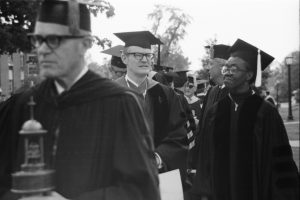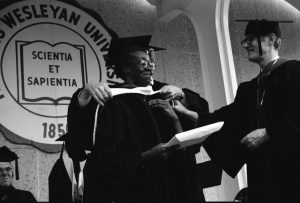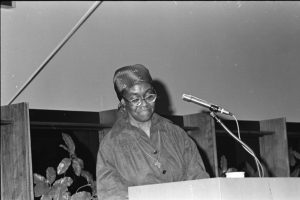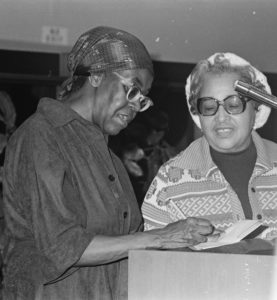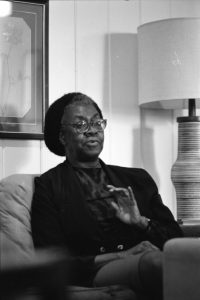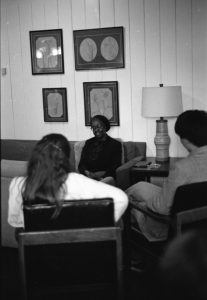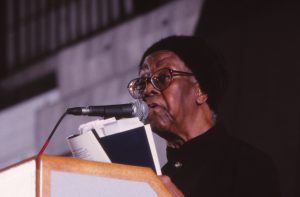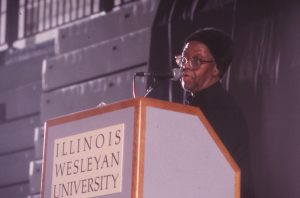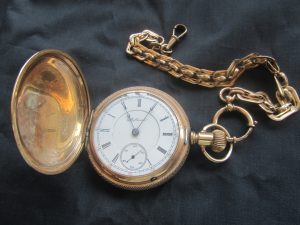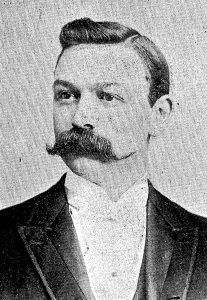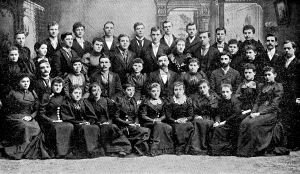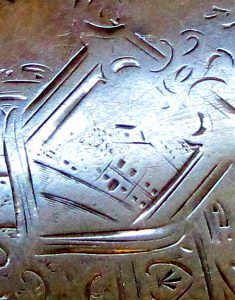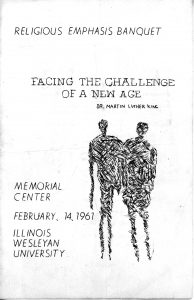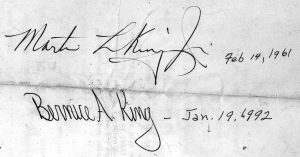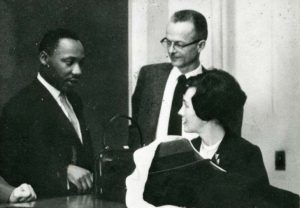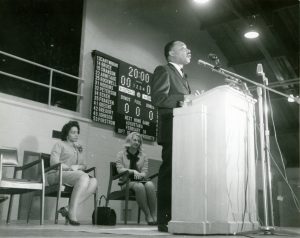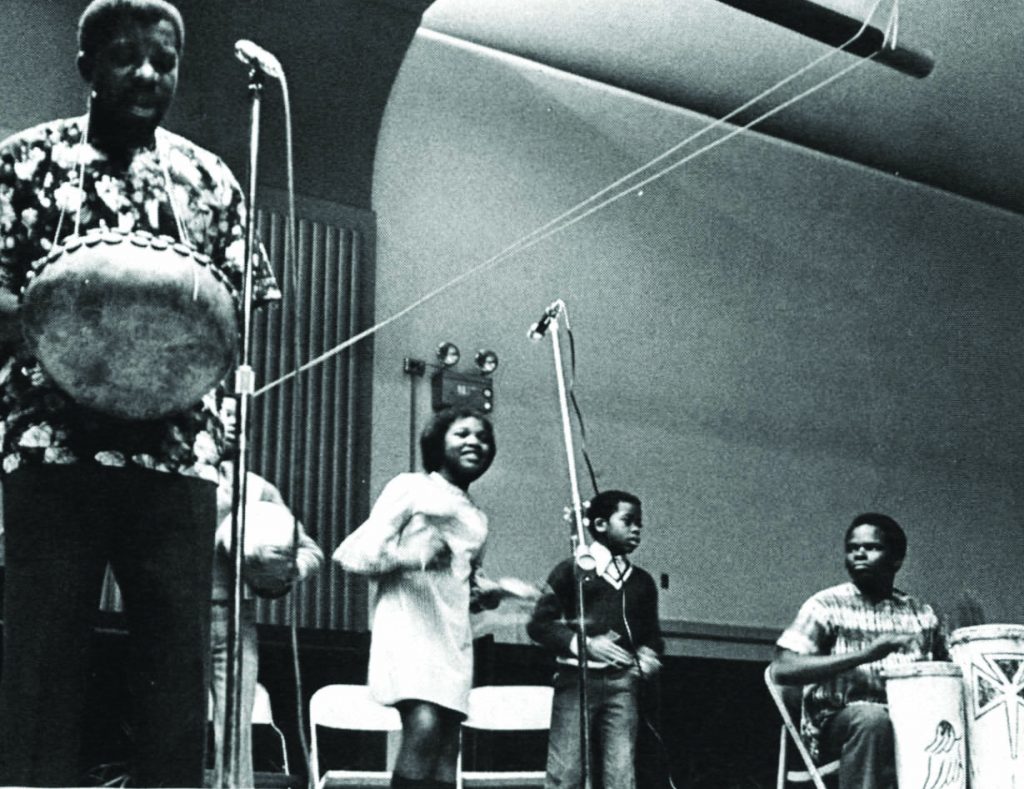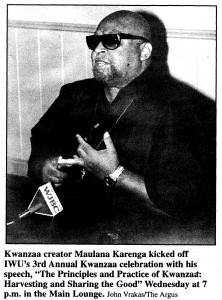This year IWU Homecoming was all in person for the first time since 2019! That means we were able to resume support from the University Archives’ collections for the museum tradition that started out in a tent on the Quad in 2010. Hard to believe it was just in 2018 that we moved indoors to the Eckley Lounge in the Memorial (Student) Center! (See photo gallery below).
Each year I have ways for attendees to interact with the exhibited materials and share their insights into campus traditions and to name the people in our largely unidentified photo collections. This year one alum solved a mystery that’s “bugged” me for a long time. I added the newly-recovered details to the photo of a car in a building that we now know was Gulick.
- Tommy Titan gear ca. 1980s anchors an array of uniforms, sweaters and jackets. A propmt by the Tommy gear asks alumni to leave their name and class year if they served as a Tomy–no one has a comprehensive list but we now know about a dozen of them!
- Alumni from the 1980s and 2000s move around the display area
- Alumni from the 1980s look at the part of the exhibit that holds aerial photos and student life from different eras. A laptop in the foreground is set up to show digital collections.
- A group of friends from 1980s class years look through the theatre and student life photographs.
- Published volumes of yearbooks, The Argus and School of Music performance programs are on tables around the museum displays.
- A prompt at the table by the entry asks alumni to share any traditions they experienced during their IWU days. Memorabilia and photos related to Hedding Hall and championship athletic teams stretch beyond.

